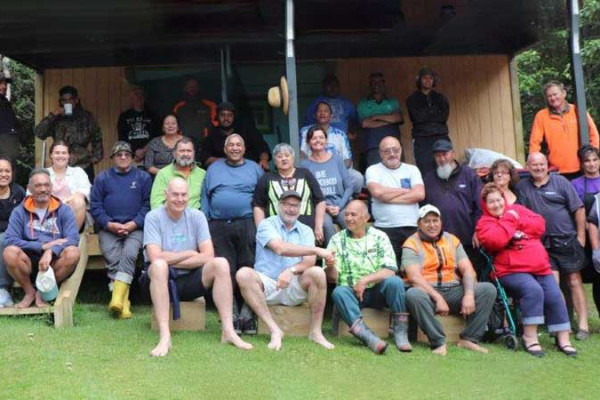A project to raise erosion awareness among Nelson’s lifestyle block owners has boosted local resilience, enhanced community partnerships – and seen 35,000 trees planted.
Background
The approach taken by Nelson City Council (NCC) proved so successful that it’s now the working template for a nationwide NZ Landcare Trust programme for farm planning on lifestyle blocks.
MPI’s Hill Country Erosion Programme supported the Sustainable Land Nelson programme which ran from October 2018 to July 2019. Funding was targeted at NCC helping upskill
owners of lifestyle blocks under pasture and on slope – and getting to draw up individual plans for managing their properties sustainably.
Along the way NCC was able to greatly strengthen internal capacity for addressing erosion prone land issues and options for alternative land cover. The result has been improvements to water quality and biodiversity, other vital sustainable land management priorities.
Small properties at scale
Community-based land management was the project’s initial focus: educating lifestyle block owners on pressing issues such as sediment runoff from surrounding hills, and unfenced waterways.
A new element was NCC providing trees for planting on erodible land at no cost to landowners, with all the positive downstream economic and biodiversity benefits. Participating smallholders would in turn develop land environment plans (LEPs) as a practical on-farm roadmap to optimize land use.
Stage two of the project saw a series of well-attended gatherings, attracting a diverse and highly motivated section of the North Nelson rural community.
Susan Moore-Lavo, NCC Sustainable Land Manager, recalls the buzz surrounding the first seminar held at the Wakapuaka Memorial Hall in North Nelson on 29 November 2019.
“What connects people up is their land. Over 100 came that day, which for the Nelson rural community was surprising. Speakers were enthused about planting trees as a way to manage erosion,” she said.
Benefits of working dinners
Three workshops followed, attracting 61 people from 43 properties. The format became a working dinner over three hours, with people grouped by catchment.
“Relaxing over good food, people who lived in the same valley but who’d never met each other, started talking,” Susan Moore-Lavo recalled.
In supported group sessions, workshop participants drew up their own LEPs, thereby helping reduce NCC workload for relatively small total areas of land.
The third stage of the project was planting trees. Severe summer drought across the region slowed this activity but landowners and NCC successfully ensured the plants got into the ground.
A total of 11 landowners each took 1000 plants; a further 14 planting out fewer numbers. Almost all trees were natives, sourced from within the region.
“Site visits were not required, but many landowners requested this from council. We had some financial flexibility that allowed for protective sleeves and fencing to protect the planting,” said Susan.
NCC has since gained further HCEF funding for four years, with a focus on forestry lands and retirement of land more suitable for permanent forest cover.



